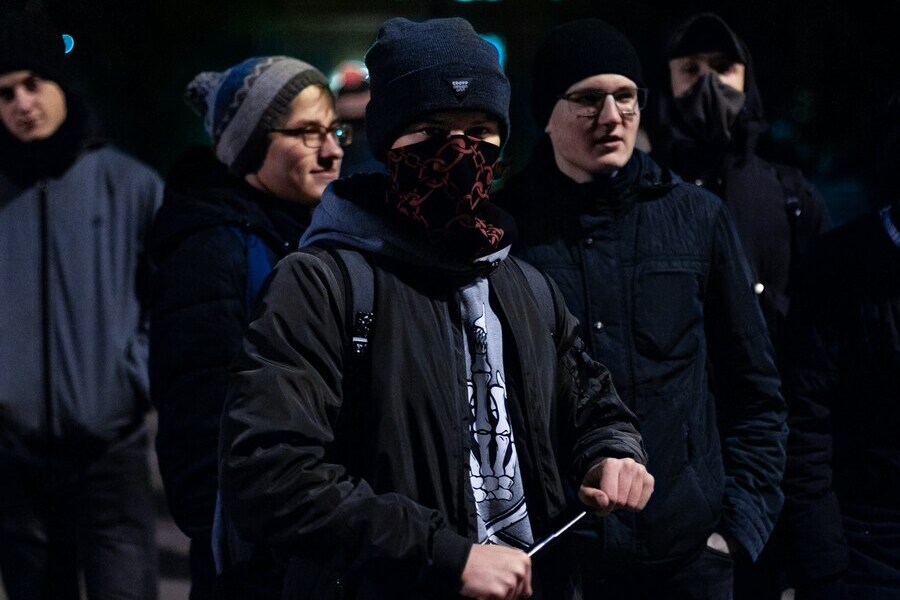How Gang Members in San Diego Get Convicted: 5 Common Mistakes to Avoid
Are you facing gang-related criminal charges in San Diego? Understanding how prosecutors build cases against alleged gang members is crucial for protecting your rights and mounting an effective defense.
In this article, we’ll break down the five most common ways people with gang ties get convicted of serious felony offenses in San Diego. By knowing what mistakes to avoid, you can put yourself in a stronger position if you’re ever investigated or charged with a gang-related crime.
1. Incriminating Social Media Posts
Social media activity is one of the first places prosecutors look for evidence to use against alleged gang members. If you post about illegal activities, brag about your gang affiliation, or share content that appears to glorify violence, those posts can and will be used against you in court.
Even if you think your profiles are private, never assume anything you post online is truly hidden from law enforcement. The best policy is to avoid putting anything on social media that you wouldn’t want shown to a judge or jury.
2. Location Tracking Through License Plate Readers
Many people don’t realize that their vehicle location can be tracked through license plate readers (LPRs). This emerging surveillance technology is becoming increasingly common in San Diego.
LPRs can document when a vehicle associated with an alleged gang member enters rival territory. Prosecutors may try to use this location data to place you at or near a crime scene, even if no other evidence definitively links you to the offense. Be aware that everywhere you drive may be tracked and cataloged for future reference.
3. Jail Informants and Recorded Calls
Law enforcement routinely uses in-custody informants and recorded jail calls to get incriminating statements from defendants. This tactic is known as a “Perkins operation.”
For example, if you’re arrested and held in jail before seeing a judge, detectives may place an informant in your cell to casually bring up your charges in conversation, hoping you’ll make an admission. Inmates are also warned that jail phone calls are recorded, yet many still discuss their cases and unwittingly provide evidence to the prosecution.
The key is to avoid discussing any details of your situation with fellow inmates or over the phone. Politely decline to talk about your case with anyone except your attorney, and never assume a conversation in custody is private.
4. Police Interviews Before Charges Are Filed
Another way people get tripped up is by agreeing to a voluntary police interview before they’ve been formally arrested or charged. This is often called a “processing interview.” Detectives may downplay the seriousness of the situation and assure you that you’re free to go afterward.
Their real goal, however, is to get you on the record about key facts and catch you in any inconsistencies that can be used against you later. Even if you’re completely innocent, it’s risky to give a statement without having an attorney present to protect your rights. You may inadvertently say something that can be twisted and misconstrued by police or prosecutors.
If investigators want to interview you, politely decline to answer questions and say you will not discuss anything without a lawyer. Remain firm in asserting your right to remain silent. Remember, investigating officers are not on your side, even if they seem friendly and claim they just want to clear things up.
5. Distinctive Tattoos and Clothing
Finally, many alleged gang members get identified by their tattoos or clothing that shows up on surveillance video. Investigators will look for any distinguishing features they can match up to known suspects.
To protect yourself, keep tattoos covered up in public as much as possible, and avoid wearing the same distinctive clothes repeatedly. Of course, the best approach is to not participate in any gang-related or illegal activities whatsoever. But if you find yourself suspected of a crime, denying police any easy way to place you at the scene can only help your defense.
Protect Your Rights and Freedom
While these tips can help you avoid strengthening a case against you, the most important thing to remember is to exercise your Constitutional rights. You have the right to remain silent and the right to have an attorney represent you in any interactions with law enforcement. Use them.
If you’ve been arrested for a gang-related crime in San Diego, taking prompt action is crucial. Prosecutors will not hesitate to use the tactics discussed above to build a case against you. The longer you wait to start fighting back, the harder it becomes to undo the damage.
Hiring an experienced gang crimes defense lawyer is the best way to level the playing field and ensure your rights are protected. A skilled attorney can challenge unreliable evidence, identify holes in the prosecution’s case, and advocate for the best possible outcome on your behalf.
At David P. Shapiro Criminal Defense Attorneys, we have a proven track record of defending clients accused of gang-related crimes in San Diego. We understand how prosecutors think, and we know how to effectively push back against unfair tactics and allegations. Our team will thoroughly investigate your case, give you straightforward advice, and mount an aggressive defense to help you avoid a conviction if at all possible.
If you or a loved one has been charged with a gang-related offense, don’t wait to get help. Contact our office today for a free and confidential consultation. Call to discuss your case and start exploring your legal options. We’re here to serve as your loyal legal advocates and guide you through this challenging time.
The contents of this article and blog are meant for informational and marketing purposes only and do not constitute legal advice. Viewing and/or use of the blog does not form an attorney-client relationship. No statements in this post are a guarantee, warranty, or prediction of a particular result in your case.









